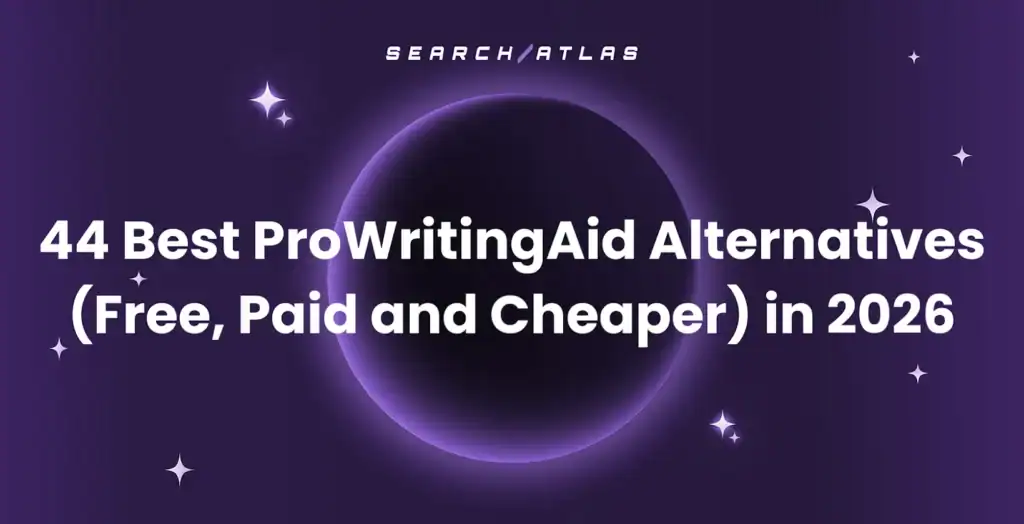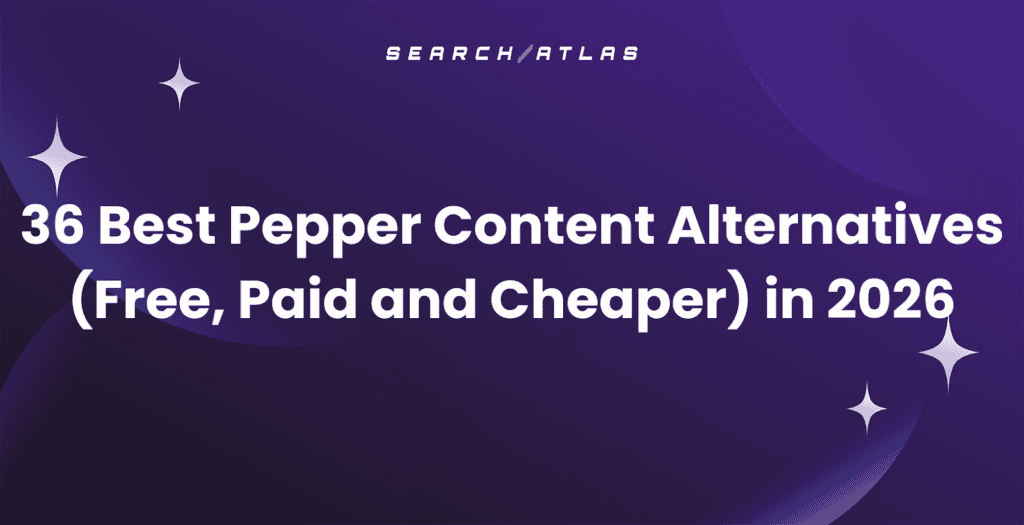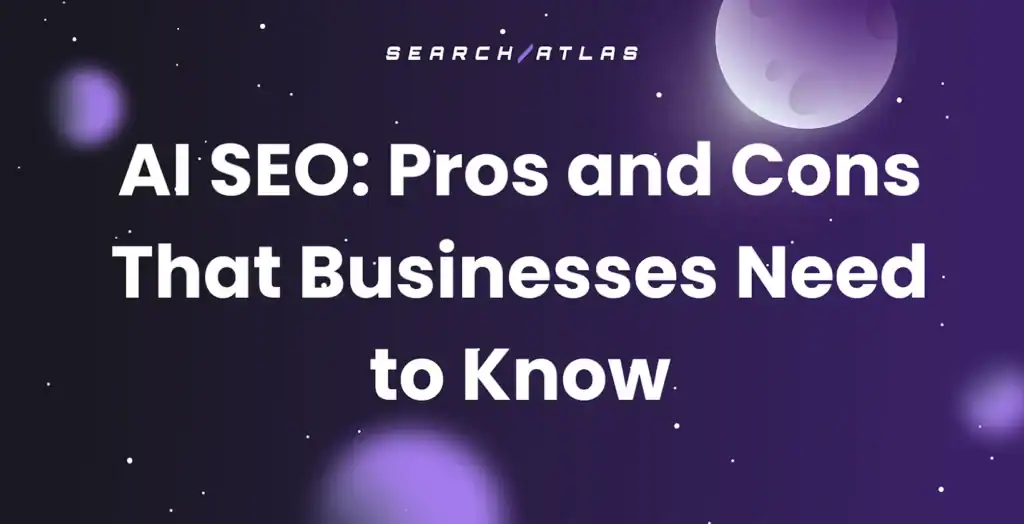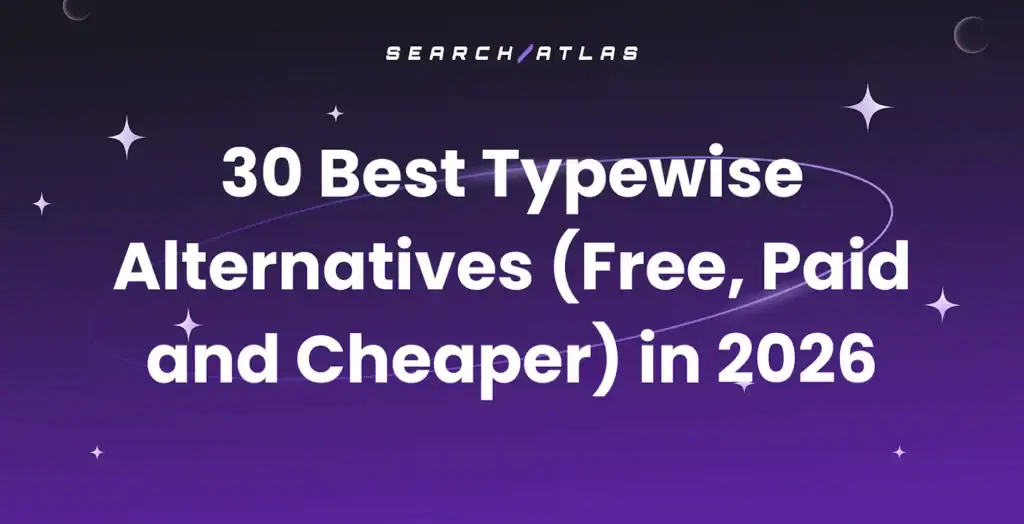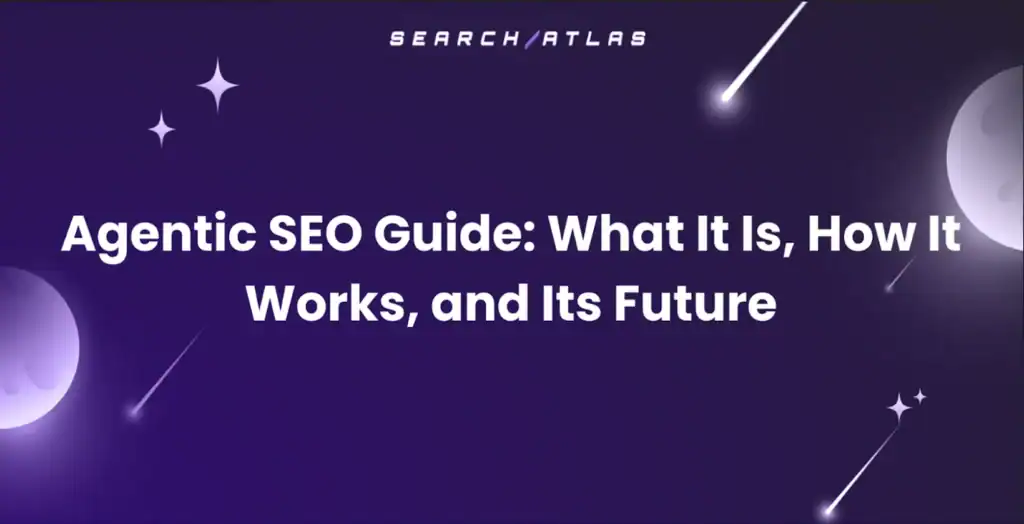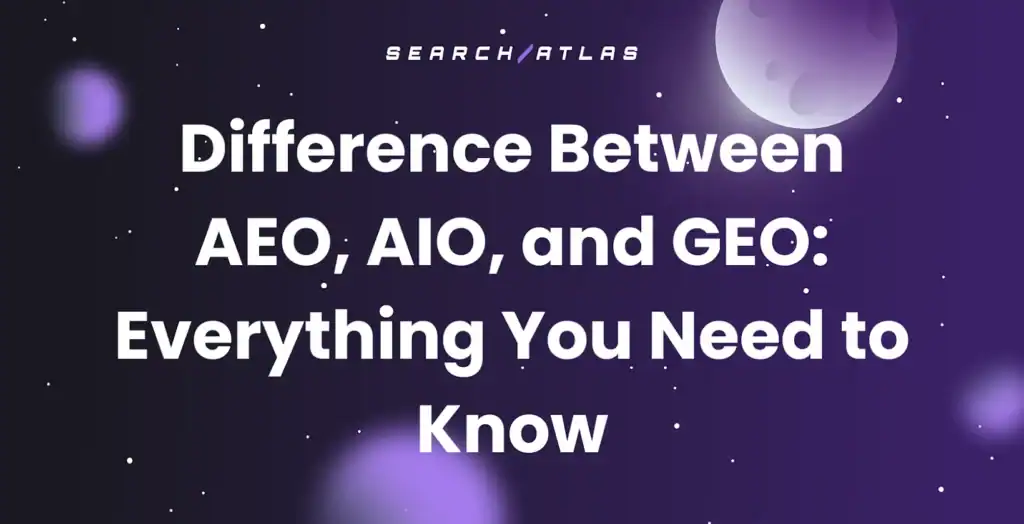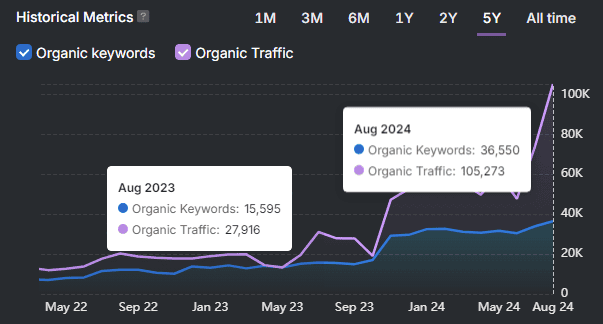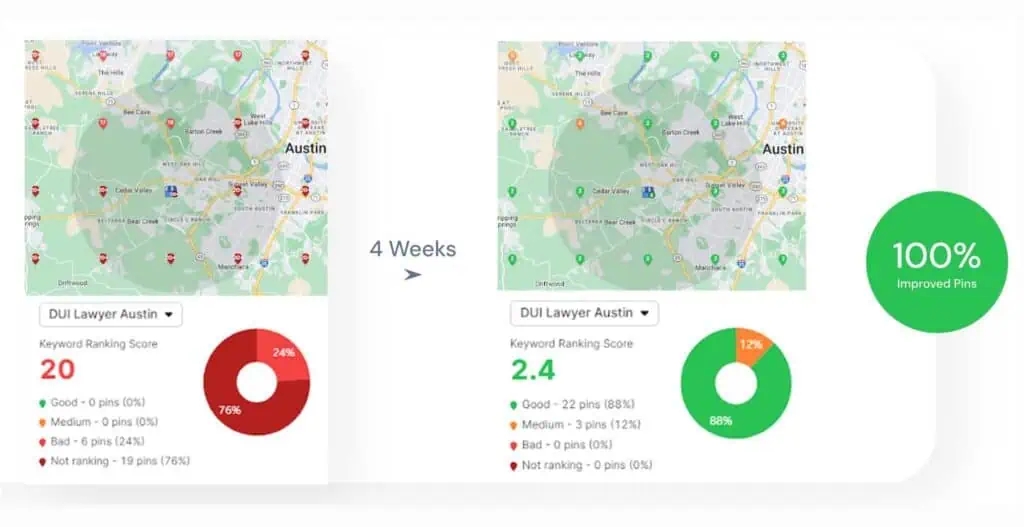SEOClarity is an enterprise SEO platform for large-scale keyword tracking, technical auditing, competitive research, and content optimization. Businesses searching for sites like SEOClarity want platforms that match or exceed these capabilities while offering more flexible pricing, broader integrations, or deeper automation. The best SEOclarity competitors combine rank tracking, site auditing, and content optimization in a unified interface that supports data-driven decision-making.
The top SEOClarity alternatives in 2025 are Search Atlas, BrightEdge, and Conductor. Search Atlas leads for enterprise-grade automation, real-time Google data integrations, and complete SEO workflow coverage without feature gating. BrightEdge is a strong choice for brands focused on AI-powered market insights and share-of-voice tracking. Conductor suits teams that prioritize content collaboration, competitive benchmarking, and ROI reporting. Businesses often choose alternatives to SEOClarity to reduce costs, increase automation, improve usability, and gain access to more innovative SEO capabilities.
The 15 best SEOClarity alternatives for every budget and use case are listed below.
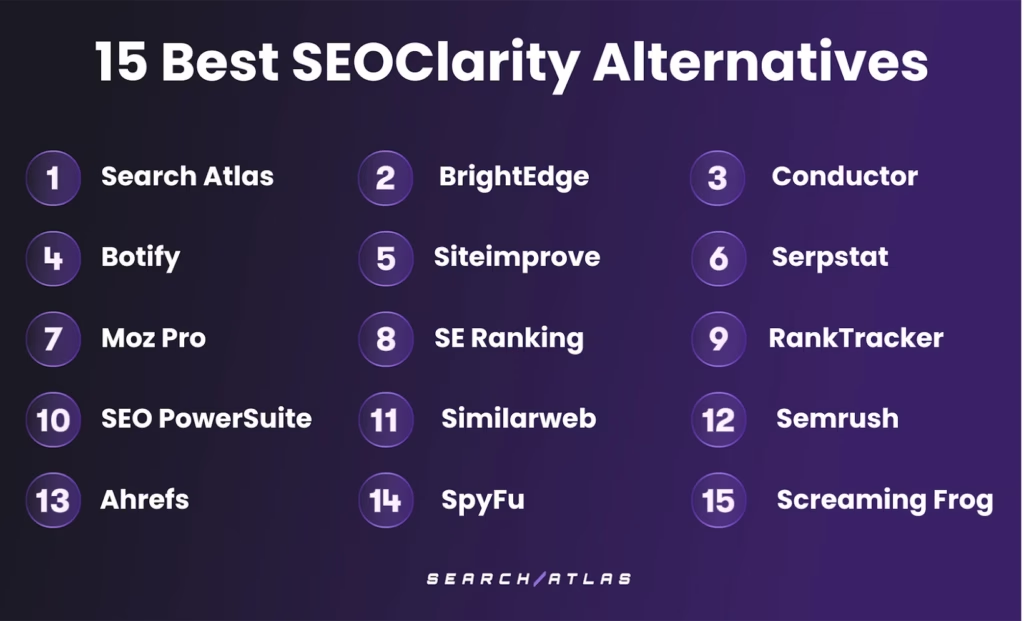
1. Search Atlas
Search Atlas is an alternative to seoClarity because it’s an enterprise SEO and PPC automation platform that manages keyword rankings, technical audits, backlink strategies, content optimization, and local SEO performance in one dashboard. The Search Atlas SEO platform connects directly to Google Search Console (GSC), Google Business Profile (GBP), and Google Ads. This direct data integration improves accuracy, execution speed, and campaign management for enterprise teams.
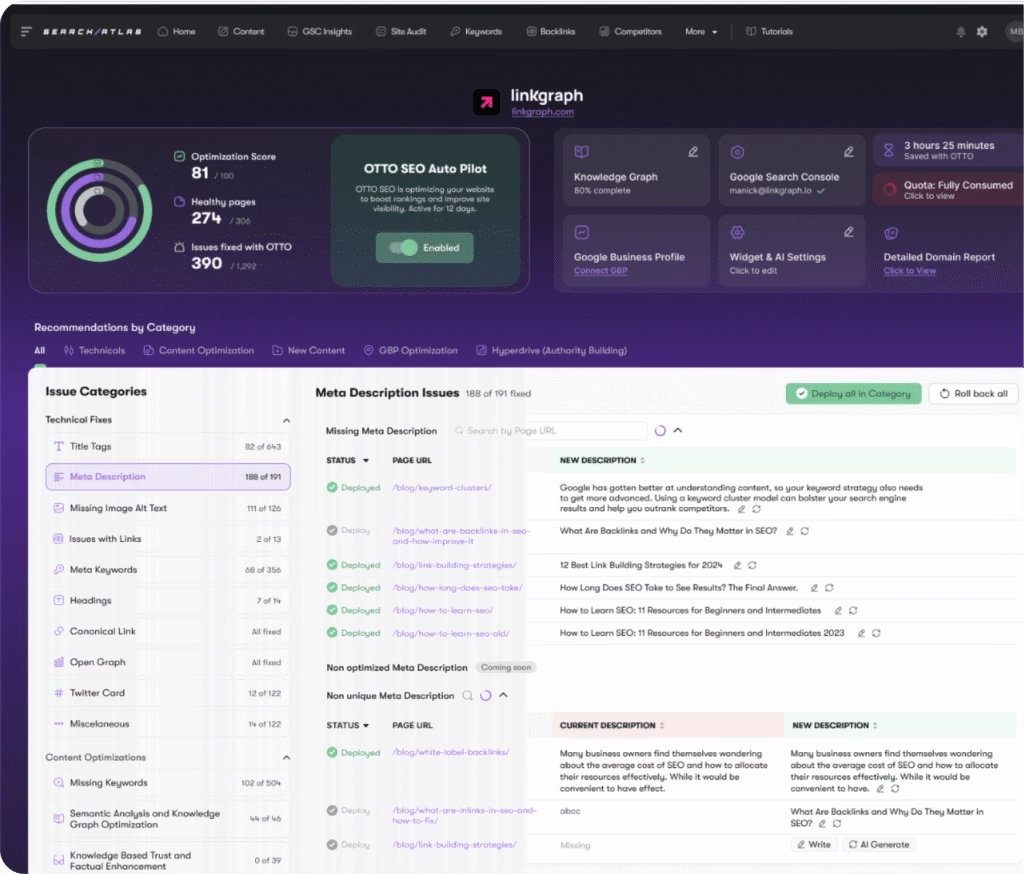
Search Atlas features OTTO SEO for automated issue resolution, SCHOLAR for semantic content scoring, and Content Genius for entity-based content optimization. OTTO SEO fixes on-page errors, deploys structured data, resolves technical issues, optimizes GBP listings, and performs link exchanges directly on the website. The backlink system includes a real-time database with over 100 trillion links, velocity tracking, anchor analysis, topical authority scoring, and integrated outreach campaigns. Local SEO tools track map rankings by zip code, generate AI-assisted review responses, and build citations at scale.
Compared to SEOClarity, Search Atlas is the best alternative for all-in-one SEO, including enterprise rank tracking, competitor research, backlink acquisition, technical auditing, and large-scale keyword research. Search Atlas includes high-value automations, proprietary link networks, and unlimited client/project allowances in its agency-level tiers, while SEOClarity gates many of these features behind custom contracts and higher pricing.
Search Atlas is a significantly cheaper SEOClarity alternative. Search Atlas pricing starts at $99/month with no credit limits, and it scales to $399/month for enterprise usage.
Highlights from the Search Atlas SEO tool review include automation that deploys changes instantly, full-scale local SEO capabilities, and access to proprietary AI systems in every plan.
The cons of Search Atlas include a learning curve for advanced automation and onboarding requirements for complex campaign setups.
When we compare Search Atlas vs SEOClarity, Search Atlas is a better choice for enterprise teams that need automated technical fixes, integrated backlink outreach, and advanced local SEO tracking with real-time Google data.
2. BrightEdge
BrightEdge is an alternative to seoClarity because it’s an enterprise SEO platform that combines keyword research, content optimization, rank tracking, and competitive analysis in one interface. BrightEdge includes Data Cube for market and keyword research, StoryBuilder for reporting, and ContentIQ for large-scale technical audits. BrightEdge integrates AI recommendations that guide on-page optimization and campaign prioritization.
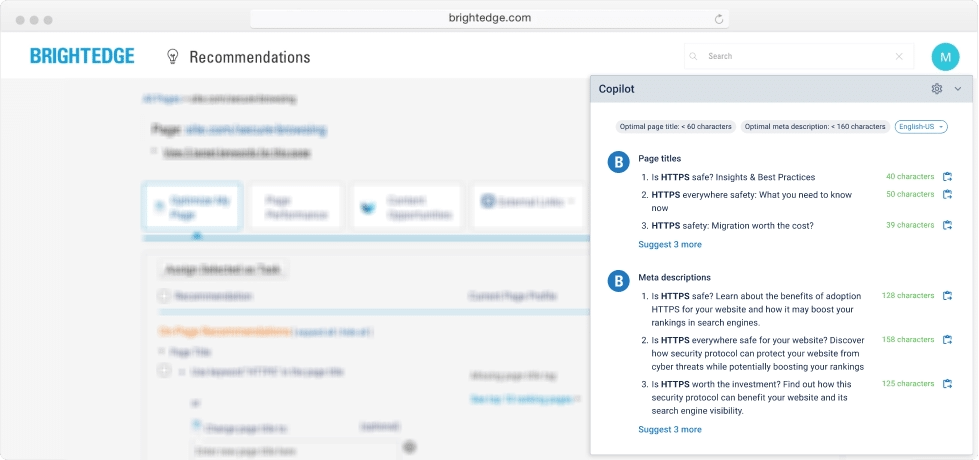
In the SEOClarity vs BrightEdge comparison, BrightEdge is the best SEOClarity alternative for enterprise-level keyword intelligence, SERP analysis, and market share tracking. SEOClarity offers strong technical SEO and site audit capabilities, but BrightEdge provides a deeper focus on competitive content performance, intent targeting, and localized search insights.
BrightEdge pricing is custom and aimed at mid-to-large enterprise budgets.
Pros of BrightEdge include AI-driven keyword recommendations, scalable rank tracking across thousands of keywords, and unified reporting that connects content performance with ROI metrics. Our BrightEdge review covers additional use cases and explains how BrightEdge supports global SEO teams.
Cons of BrightEdge include a steep learning curve for smaller teams, higher pricing than mid-market platforms, and limited flexibility for businesses that need only selective SEO modules.
When comparing SEOClarity vs. BrightEdge, BrightEdge suits enterprises that prioritize integrated reporting and market visibility, while SEOClarity offers a stronger workflow for technical SEO management.
3. Conductor
Conductor is an alternative to seoClarity because it’s an enterprise SEO platform that focuses on content intelligence, keyword research, and performance monitoring for large-scale websites. Conductor integrates search, social, and site analytics into one dashboard, which gives marketing teams a unified view of organic visibility and audience insights.
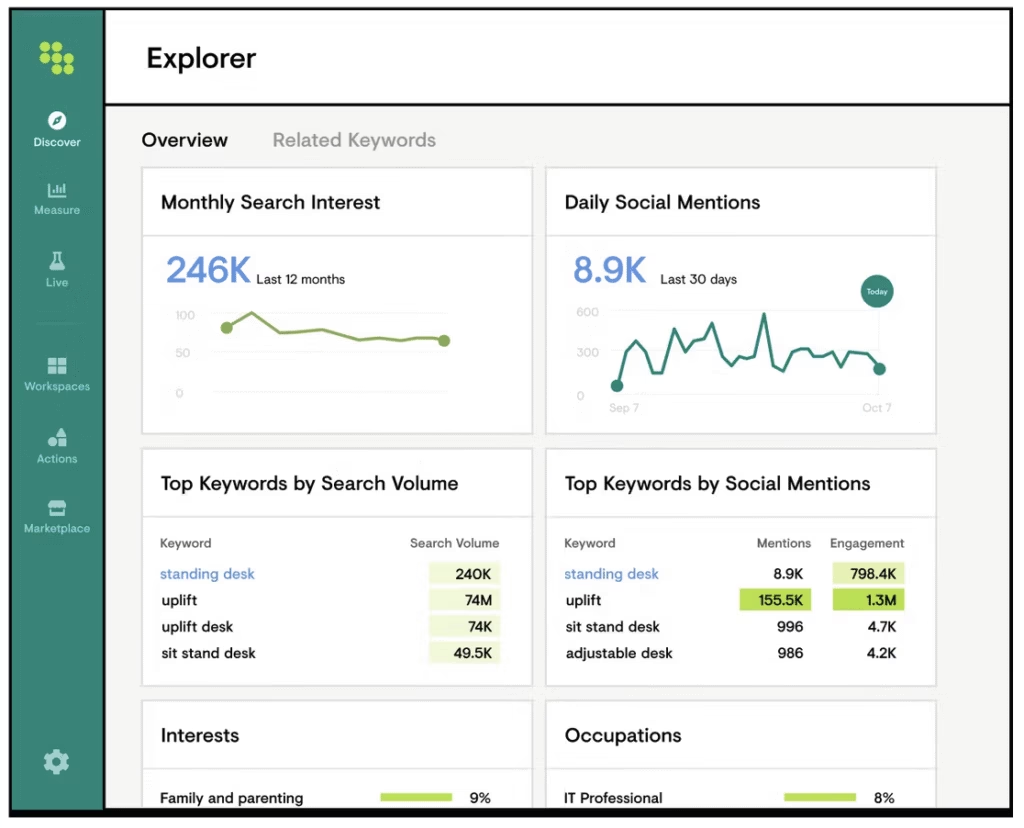
Compared to SEOClarity, Conductor offers stronger search, social, and site analytics. SEOClarity delivers deep site auditing and competitive analysis, but it lacks some of the AI-driven editorial planning and cross-platform integration that Conductor provides. Enterprise marketers often choose Conductor for its collaboration features and its ability to connect SEO data directly with CMS (Content Management System) and analytics environments.
The key benefits identified in the Conductor review include robust keyword segmentation, accurate search volume metrics, and advanced content scoring that maps directly to searcher intent. These capabilities help teams streamline topic research, measure content effectiveness, and adapt strategies quickly in competitive markets.
Limitations of Conductor include higher entry-level pricing compared to mid-market tools and a learning curve for new users due to its extensive feature set. Some teams note that backlink data is less comprehensive than in platforms focused specifically on link intelligence.
In the SEOClarity vs. Conductor deep-dive, Conductor is the better choice for content marketing teams that prioritize keyword intelligence, integrated workflows, and performance tracking across multiple digital channels.
4. Botify
Botify is an alternative to seoClarity because it’s an enterprise SEO platform that specializes in site crawling, log file analysis, and AI-driven search optimization. Botify combines analytics, automation, and consulting services to help large websites improve indexation, page rendering, and organic revenue in traditional and AI-driven search platforms. Botify modules, such as Botify Analytics, Botify Intelligence, and Botify Activation, integrate with CMS, analytics tools, and search engines for faster optimization cycles.
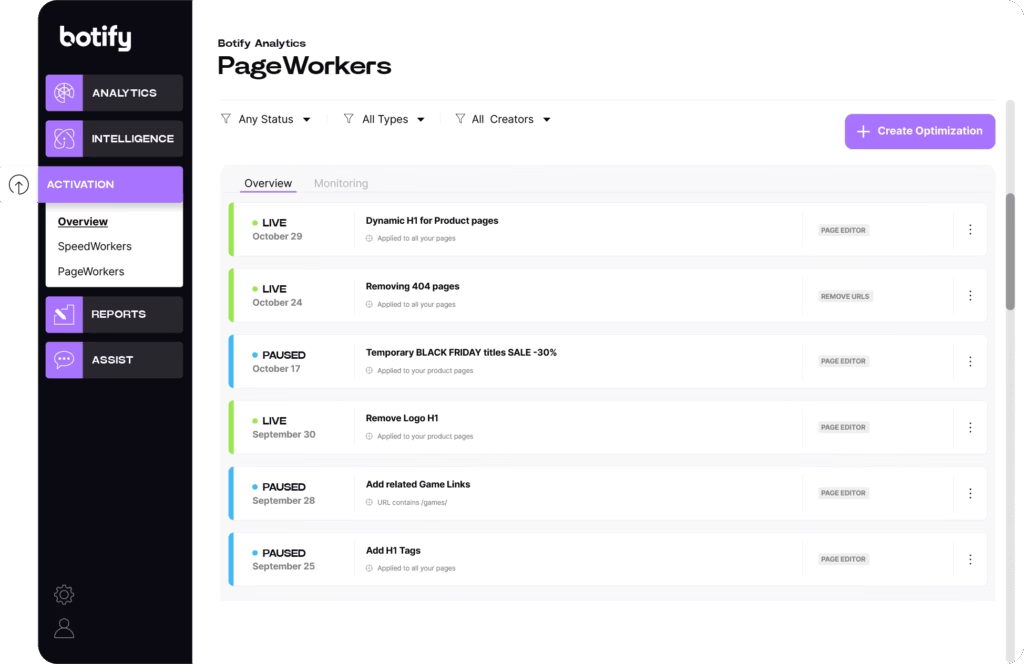
Compared to SEOClarity, Botify focuses more on deep crawl data and rendering diagnostics, while SEOClarity offers broader all-in-one SEO coverage with content optimization and competitive tracking. Botify stands out for its log file analysis, AI-powered indexation control, and automation features like SpeedWorkers and SmartIndex, which target indexation and rendering efficiency at scale.
Botify is a paid, premium SEOClarity alternative for organizations with dedicated SEO and development resources. Botify pricing is not publicly listed, but industry sources and user reviews place it in the enterprise tier, often starting at $5,000 to $6,000/month depending on the number of URLs crawled, integrations, and service add-ons.
Advantages noted in the Botify review include advanced crawl and log file analysis, AI-driven recommendations for faster page indexing, and measurable ROI improvements in high-scale enterprise environments. Its platform is built to handle millions of URLs, which makes it suitable for eCommerce, publishers, and global brands that need granular visibility into site performance.
Disadvantages of Botify include premium pricing and the fact that full adoption requires strong technical SEO resources.
5. Siteimprove
Siteimprove is an alternative to seoClarity because it’s an AI-powered digital optimization platform that combines SEO, accessibility compliance, quality assurance, and digital experience analytics in one environment. The Siteimprove SEO Intelligence module brings together content planning, keyword research, and optimization with real-time monitoring. Its accessibility tools ensure compliance with the ADA (Americans with Disabilities Act), WCAG (Web Content Accessibility Guidelines), and EAA (European Accessibility Act).
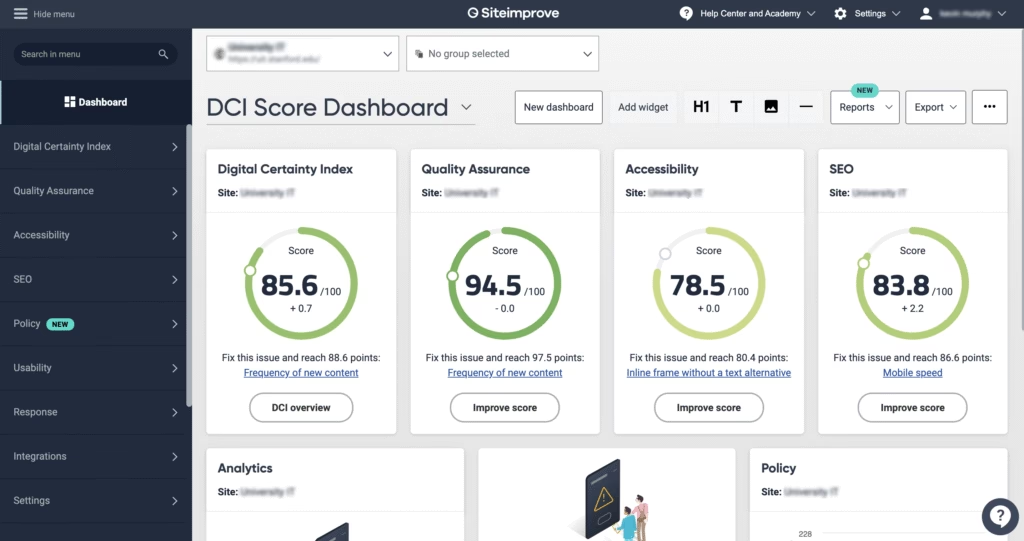
Key Siteimprove features include accessibility scoring, automated QA checks, the Digital Certainty Index, organic and paid search data integration, CMS integrations like Adobe Experience Manager, and unified analytics for SEO and UX performance.
Compared to SEOClarity, Siteimprove is a better alternative for organizations that are prioritizing accessibility compliance, quality assurance, and governance over deep backlink analysis or large-scale competitor research. Siteimprove focuses less on link data and more on site health, compliance, and holistic content quality metrics.
Siteimprove does not publish pricing, but reviews place it in the $500 to $1,500/month range for SMB packages and $2,000+ per month for enterprise plans, depending on the modules and service level selected.
Pros highlighted in the Siteimprove review include its all-in-one approach to accessibility, governance, and SEO, which makes it ideal for compliance-heavy industries. Cons of Siteimprove are higher pricing and less depth in backlink data, competitive intelligence, and technical audit capabilities compared to SEO-first platforms.
6. Serpstat
Serpstat is an alternative to seoClarity because it’s an all-in-one SEO platform for keyword research, rank tracking, backlink analysis, site auditing, and competitive domain analysis. Serpstat includes modules for keyword clustering, content optimization, PPC analysis, and API-based data exports for large-scale research. Serpstat supports regional tracking in more than 230 Google databases, which makes it a versatile tool for global SEO campaigns.
Compared to SEOClarity, Serpstat is the best alternative for teams that need affordable access to keyword research, rank tracking, and backlink intelligence without committing to enterprise-level contracts. SEOClarity provides more advanced automation and technical workflow tools, but Serpstat offers a broader keyword and competitor database at a fraction of the cost.
Serpstat is a paid but significantly cheaper SEOClarity alternative. Serpstat pricing starts at $59/month for Lite plans and scales to $479/month for advanced enterprise features, with discounts for annual billing.
Benefits mentioned in our Serpstat review include its wide geographic keyword coverage, built-in competitor PPC data, and strong backlink analytics for the price. Serpstat cons include limited automation compared to SEOClarity and fewer native integrations for complex enterprise workflows.
7. Moz Pro
Moz Pro is an alternative to seoClarity because it’s an SEO software suite for keyword research, rank tracking, backlink analysis, and site auditing. Moz Pro includes Keyword Explorer for search volume and difficulty analysis, Link Explorer for backlink profiles, Site Crawl for detecting technical issues, and On-Page Grader for page-level recommendations.
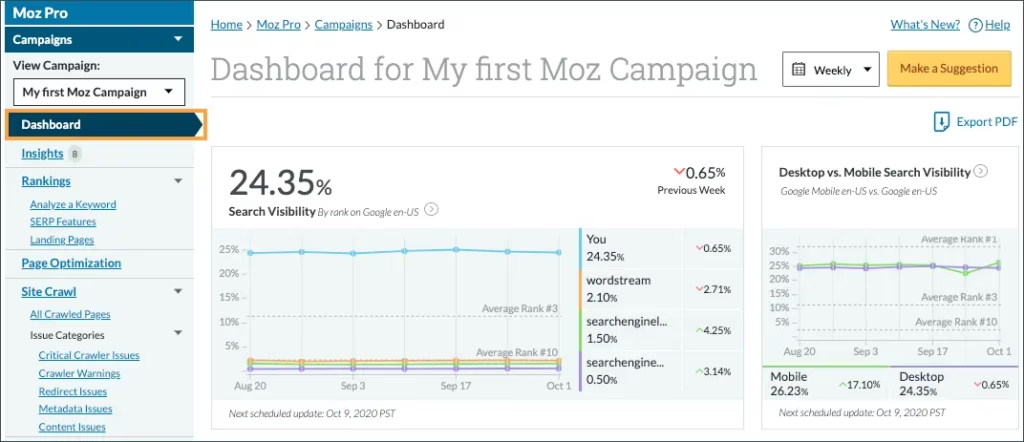
Compared to SEOClarity, Moz Pro is the best alternative for accessible rank tracking, beginner-friendly keyword research, and simplified site audits without a steep learning curve. While SEOClarity delivers advanced automation and enterprise-scale integrations, Moz Pro focuses on usability, education, and practical features for small to mid-sized marketing teams.
Moz Pro is a cheaper SEOClarity alternative, with plans starting at $99/month. It is affordable and suitable for organizations that do not require high-volume automation or deep API access.
Pros mentioned in the Moz Pro review include an intuitive interface, a reliable link index for competitive analysis, and comprehensive training resources through Moz Academy.
Cons of Moz Pro are slower keyword database updates compared to enterprise tools, limited technical SEO capabilities, and reduced scalability for global campaigns.
In the SEOClarity vs Moz Pro comparison, Moz Pro works best for marketers who prioritize simplicity, guided optimization, and cost-effective access to core SEO functions.
8. SE Ranking
SE Ranking is an alternative to seoClarity because it’s an SEO platform that covers keyword rank tracking, site audits, backlink checks, and competitor research in one interface. It includes keyword grouping, SERP analysis, on-page optimization suggestions, and white-label reporting. Integration with Google Search Console and Google Analytics enables consolidated performance tracking.
As a substitute for SEOClarity, SE Ranking works best as a lower-cost option for consistent rank monitoring, accessible competitor insights, and easy-to-run technical checks. While SEOClarity caters to enterprise-scale workflows with deeper automation, Our SE Ranking review shows that the tool focuses on delivering core SEO functions with straightforward setup and faster reporting.
SE Ranking is paid and less expensive than SEOClarity, with plans starting at $55/month and scaling to $239/month depending on keyword volume and tracking frequency.
SE Ranking strengths include flexible rank tracking settings, quick site audit setup, and customizable client reports. Drawbacks are a smaller backlink database than enterprise-focused tools and fewer options for automated technical fixes.
In the SEOClarity vs SE Ranking matchup, SE Ranking suits agencies and SMBs that value affordability and simplicity without giving up essential SEO capabilities.
9. RankTracker
RankTracker is an alternative to seoClarity because it’s an SEO toolkit focused on keyword rank tracking, SERP analysis, backlink monitoring, and keyword research. Ranktracker allows tracking on desktop and mobile devices, local search targeting by city or ZIP code, and competitor ranking comparisons in real time.
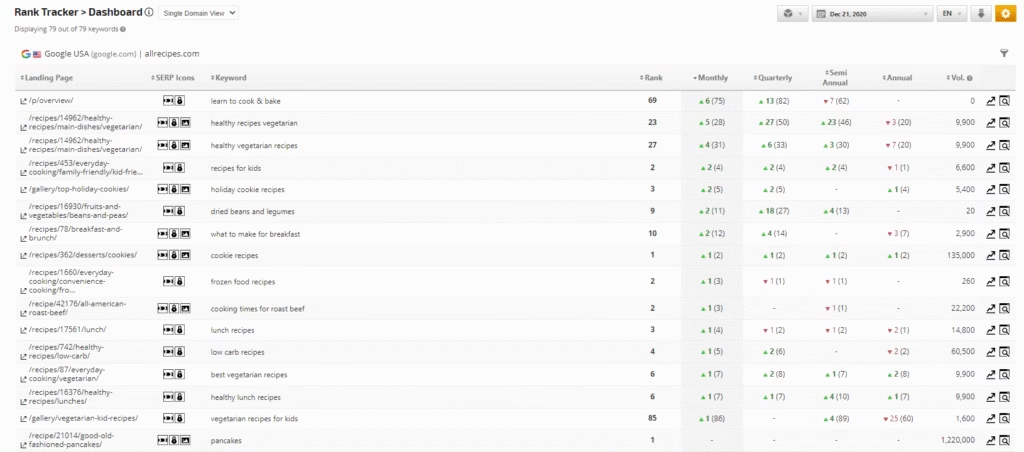
RankTracker is a good alternative to SEOClarity for teams that need accurate, location-specific rank tracking and flexible keyword reporting. SEOClarity offers broader technical auditing and enterprise automation, while RankTracker prioritizes depth and precision in tracking data.
RankTracker is a paid but more affordable SEOClarity alternative, with plans starting at $16/month for basic features and scaling to $72/month for advanced tracking limits and reports.
Pros include granular location targeting, SERP feature tracking, and customizable scheduled reports. Cons include limited technical SEO tools and a smaller backlink index than all-in-one enterprise platforms.
According to our RankTracker review, this SEOClarity alternative works best for marketers and agencies that want focused, cost-effective ranking data without the overhead of a full enterprise suite.
10. SEO PowerSuite
SEO PowerSuite is an alternative to seoClarity because it’s a desktop-based SEO toolkit that includes four main modules that include Rank Tracker, Website Auditor, SEO SpyGlass, and LinkAssistant. SEO PowerSuite modules cover keyword tracking, site auditing, backlink analysis, and outreach campaign management.
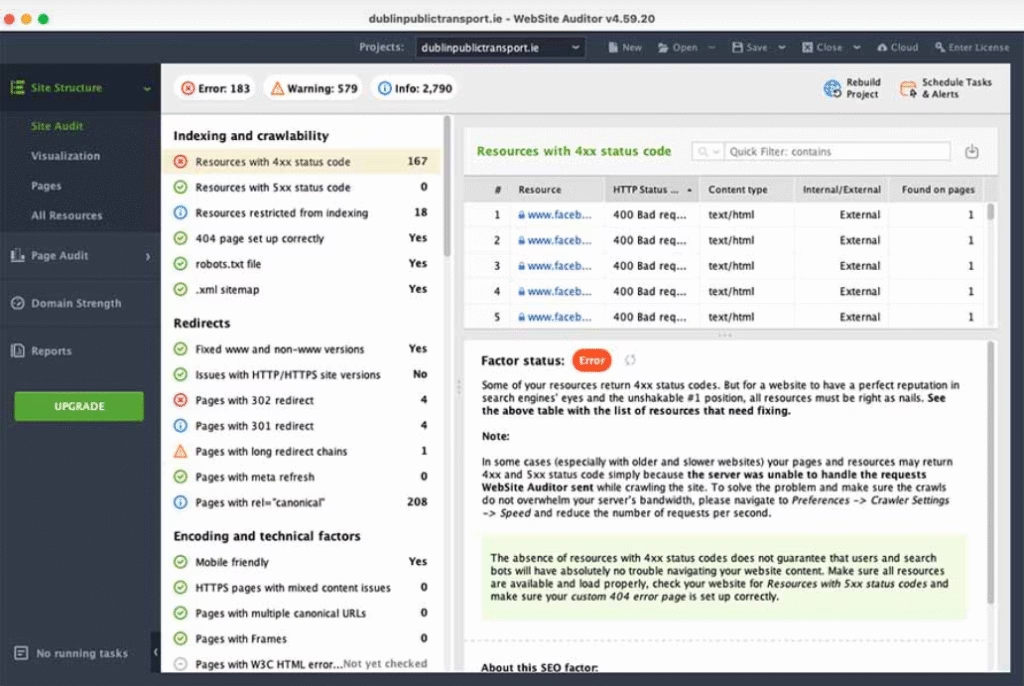
Compared to SEOClarity, SEO PowerSuite is the best alternative for affordable all-in-one SEO capabilities without recurring high SaaS fees. While SEOClarity offers cloud-based automation and real-time Google integrations, SEO PowerSuite provides deep on-demand analysis that runs locally, which makes it cost-effective for consultants and small agencies.
SEO PowerSuite is a paid but significantly cheaper SEOClarity alternative, with plans starting at $29.10/month and free feature-limited versions available.
Highlights from the SEO PowerSuite review are unlimited keyword and backlink data exports, robust desktop performance, and no data caps. SEO PowerSuite cons include reliance on local machine resources, less collaborative capability for remote teams, and no native API integrations.
In the SEOClarity vs SEO PowerSuite comparison, SEO PowerSuite works best for SEOs who prioritize cost control, offline processing, and unlimited project scalability.
11. Similarweb
Similarweb is an alternative to seoClarity because it’s a competitive intelligence platform that tracks website traffic, referral sources, audience demographics, and market share across industries. Similarweb specializes in competitive benchmarking, traffic source analysis, and keyword gap identification.
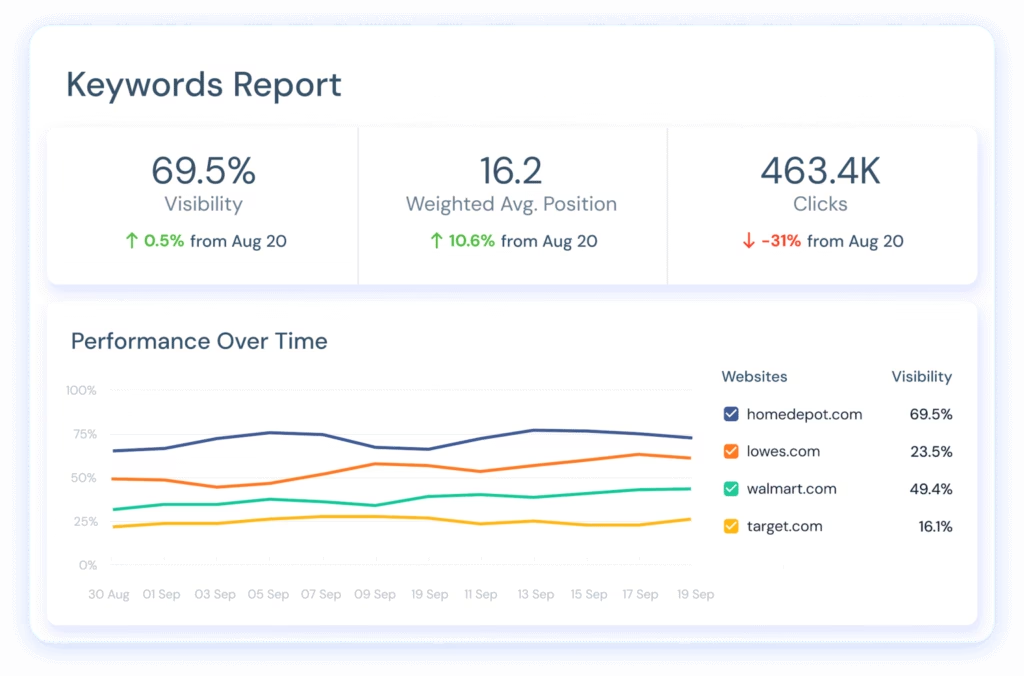
Similarweb is a better SEOClarity alternative for market research, competitor traffic estimation, and audience profiling. SEOClarity focuses on technical SEO, rank tracking, and content optimization, while Similarweb delivers broader digital intelligence in SEO, PPC, and display advertising channels.
Similarweb is a paid platform, with pricing for the Pro plan starting at $125/month for small-scale access and enterprise-level packages priced on request.
Strong points from the Similarweb review are competitive traffic data, strong visualization tools, and coverage of both organic and paid acquisition. The Similarweb weak points include limited technical SEO auditing features and fewer workflow automations than SEOClarity.
Compared to SEOClarity, Similarweb is best suited for teams that need cross-channel market visibility and competitive traffic intelligence in addition to core SEO metrics.
12. Semrush
Semrush is an alternative to seoClarity because it’s an all-in-one SEO and digital marketing platform that covers keyword research, rank tracking, backlink analysis, technical audits, traffic analysis, and PPC campaign tracking. The core Semrush features include Keyword Magic Tool, Site Audit, Backlink Analytics, and Position Tracking.
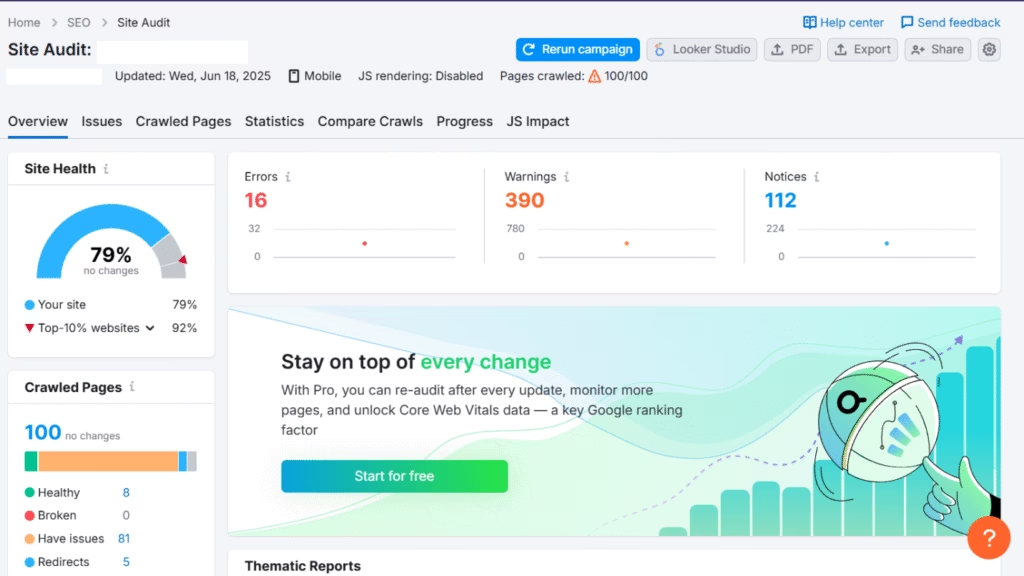
Semrush is a better SEOClarity alternative for multi-channel SEO and PPC management. SEOClarity delivers stronger enterprise automation and Google-native data integrations, while Semrush offers broader marketing tools, competitive analysis, and content marketing integrations.
Semrush is a paid SEOClarity alternative with plans starting at $139.95/month and scaling with data limits and user seats, with a Business plan going for $499.95/month.
Pros from the Semrush SEO tool review are an extensive keyword database, versatile backlink tools, and content marketing workflow features. The cons of Semrush include credit-based limits on certain reports and higher costs for additional users.
Comparing SEOClarity vs. Semrush, Semrush suits agencies and in-house teams that need an integrated SEO and PPC toolkit with strong competitive intelligence.
13. Ahrefs
Ahrefs is an alternative to seoClarity because it’s an SEO platform best known for its backlink database, but it offers keyword research, site auditing, rank tracking, and content analysis tools. The key modules of Ahrefs include Site Explorer, Keywords Explorer, Rank Tracker, and Site Audit.
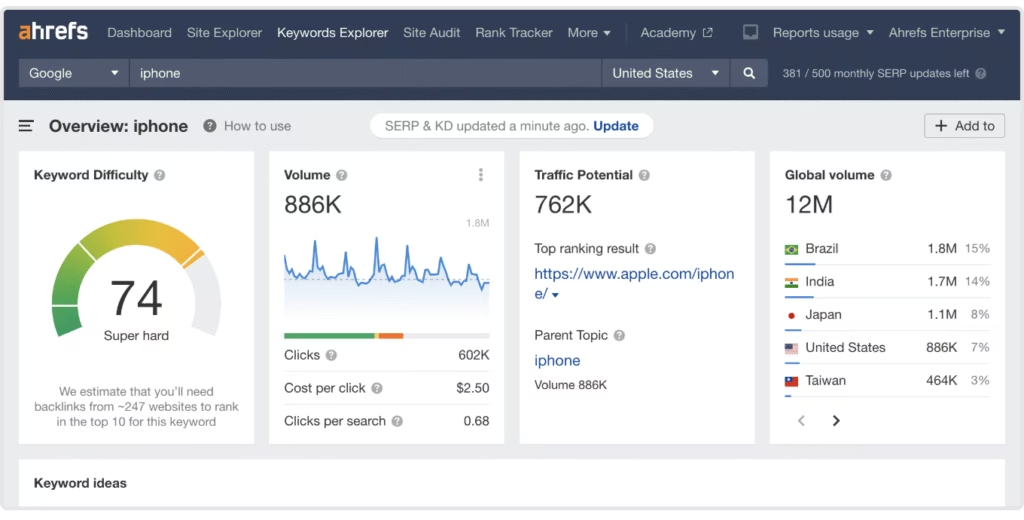
Compared to SEOClarity, Ahrefs is the best alternative for backlink intelligence and competitive link research. SEOClarity provides more automation and integrated workflow capabilities, while Ahrefs delivers unmatched backlink crawling and historical link data depth.
Ahrefs is a paid premium SEOClarity alternative, starting at $129/month and increasing based on user seats and data allowances, with the Enterprise plan priced at $1,499/month.
Strengths noted in the Ahrefs review include industry-leading backlink data, intuitive UI, and strong keyword and content research tools. Ahrefs’ cons are limited PPC data, credit-based limits, and no integrated outreach tools.
In the SEOClarity vs Ahrefs comparison, Ahrefs works best for link-building teams and SEOs who need reliable, large-scale backlink and keyword datasets.
14. SpyFu
SpyFu is an alternative to seoClarity because it’s a competitive intelligence platform for SEO and PPC research that focuses on uncovering competitor search marketing strategies. SpyFu provides keyword research, backlink analysis, rank tracking, and SERP analysis, along with historical data going back more than 15 years for both paid and organic campaigns.
Compared to SEOClarity, SpyFu is a better alternative for competitive keyword discovery, PPC campaign analysis, and backlink gap insights. SEOClarity offers stronger site auditing, enterprise-scale keyword tracking, and on-page optimization tools, while SpyFu specializes in revealing which keywords competitors rank for or bid on, how much they spend, and what ad variations they have tested.
SpyFu is a paid tool, with plans starting at $33/month for unlimited searches and downloads, making it significantly cheaper than SEOClarity for smaller teams focused on competitive research.
Pros highlighted in the SpyFu review include extensive PPC keyword history, easy-to-use competitor domain comparisons, and unlimited data exports across all plans. The cons of SpyFu include limited technical SEO auditing capabilities and fewer workflow automation options compared to enterprise SEO platforms.
15. Screaming Frog
Screaming Frog is an alternative to seoClarity because it’s a website crawler that analyzes on-site SEO factors such as metadata, page speed, broken links, and duplicate content. Screaming Frog is primarily used for technical SEO audits and content inventory management.
When we compare Screaming Frog vs. SEOClarity, Screaming Frog is the SEOClarity alternative for deep technical site audits without committing to an ongoing SaaS subscription. SEOClarity offers integrated auditing within a broader SEO suite, while Screaming Frog provides highly customizable, standalone crawl data.
Screaming Frog is a paid desktop tool with a free version that crawls up to 500 URLs and a licensed version at £199/year.
The Screaming Frog review highlights fast, detailed crawl reports, flexible export options, and robust integration with APIs like Google Analytics and Search Console. The downsides of Screaming Frog include a steeper learning curve for non-technical users and no built-in rank tracking or backlink tools.
Screaming Frog is best for advanced SEOs, agencies, and webmasters who need granular site crawl data, bulk export capabilities, and integration with analytics/search console for large-scale audits.
Why Do People Seek Alternatives to SEOClarity?
People seek alternatives to SEOClarity when they need lower-cost plans, faster onboarding, or more intuitive workflows for managing SEO campaigns. SEOClarity SEO software is known for its enterprise-grade rank tracking, site audits, keyword research, and AI-driven content optimization, but some users report limitations that make them explore other options.
The most common reasons include pricing concerns, especially for smaller teams that do not require the full enterprise suite, feature gaps such as more advanced backlink analysis, easier third-party integrations, or real-time SERP updates, and platform constraints like a steeper learning curve or less flexibility for lightweight use cases.
Evidence from user reviews shows that while SEOClarity delivers accurate data, in-depth reporting, and strong support for large-scale SEO operations, some businesses prefer low-cost SEOClarity alternatives with faster keyword refresh rates, simpler dashboards, or more specialized tools for competitor research and content auditing. Others switch to SEOClarity competitors when they need broader integration ecosystems, more affordable rank tracking at scale, or all-in-one solutions with automated workflows.
What to Look for in an SEOClarity Alternative?
The features to look for in an SEOClarity alternative are pricing flexibility, content optimization depth, backlink acquisition tools, and ease of use. SEO teams compare automation, integration range, audit speed, and competitive analysis depth to choose the right SEOClarity competitor.
The 10 features to look for in an SEOClarity alternative are below.
- Flexible Pricing Options. SEOClarity targets enterprise budgets. Stronger alternatives offer tiered monthly plans without long-term contracts or per-user charges.
- Streamlined Onboarding and UI. SEOClarity has a steep learning curve. Competitors provide faster setup, guided workflows, and simplified dashboards for all team sizes.
- Daily Rank Tracking Without Limits. SEOClarity supports rank tracking but may restrict frequency or scope. Alternatives deliver unlimited daily updates across devices, locations, and SERP features.
- Advanced Keyword Research and Clustering. SEOClarity keyword tools are functional but basic for intent grouping. Better keyword research tools cluster by topic, track trends, and detect volatility shifts.
- Entity-Based Content Optimization. SEOClarity lacks built-in NLP scoring. Alternatives score entity coverage, topic salience, and SERP match directly within the SEO content editors.
- Comprehensive Backlink Tools. SEOClarity monitors backlinks but has limited link-building workflows. Competitors include prospecting, outreach CRM, and link toxicity scoring.
- Faster, More Visual Site Audits. SEOClarity audits are thorough but slower on large sites. More advanced SEO audit tools combine rapid crawling with Core Web Vitals, JS rendering, and structured data overlays.
- Competitor Gap and Share-of-Voice Analysis. SEOClarity covers competitors but with fewer visual insights. Advanced alternatives map keyword gaps, backlink overlaps, and SERP market share in real time.
- Native AI-Powered Workflows. SEOClarity integrates with some AI tools but has no native generation. Competitors embed AI for content rewrites, schema generation, and meta-tag optimization.
- Broader Third-Party Integrations. SEOClarity supports analytics tools but has limited CMS or PPC links. The best SEOClarity alternatives connect directly to publishing platforms, ad accounts, and CRM systems.
Which SEOClarity Alternative Offers the Best Balance of Features and Price?
Search Atlas offers the best balance of features and price among all SEOClarity alternatives. While SEOClarity focuses on enterprise contracts with high annual costs, Search Atlas delivers an all-in-one SEO platform with advanced AI capabilities at tiered monthly pricing that scales for enterprises, agencies, in-house teams, and solo SEOs.
Unlike SEOClarity, which separates many features into add-ons, Search Atlas includes rank tracking, competitor research, content scoring, link prospecting, and local SEO tools in every plan without feature gating. The Search Atlas SEO platform integrates directly with Google Search Console, Google Analytics 4, and Google Business Profile, giving users accurate, up-to-the-minute data without extra cost.
Businesses switching from SEOClarity to Search Atlas often cite faster onboarding, more intuitive workflows, and a better ROI from built-in automation and unlimited reporting.
Try Search Atlas today to consolidate your SEO tech stack and get enterprise-level features without the enterprise-level price tag.





